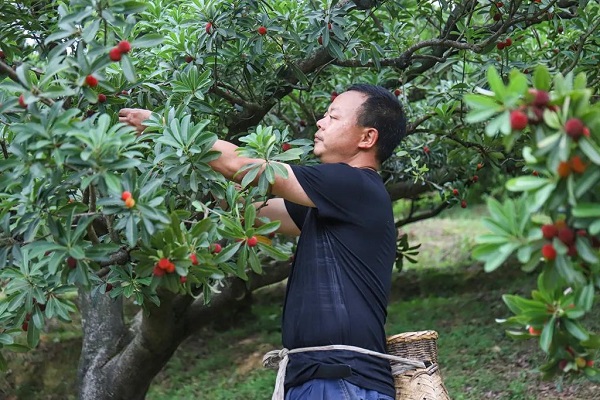Ali village: A model of agricultural-tourism integration

Ali village has an ideal environment for growing waxberries. [Photo/Guiyang news network]
With an average altitude of 1,100 meters and a forest coverage rate of 80 percent, Ali village in Wudang district, Guiyang, capital of Southwest China's Guizhou province, boasts an exceptional ecological environment and a mild climate, creating ideal natural conditions for fruit cultivation.
To date, the village has developed over 10,000 mu (667 hectares) of premium fruit orchards, including 7,000 mu of waxberries and 3,000 mu of cherries, loquats, peaches, plums, and other high-quality fruits.
Today, Ali thrives seasonally: cherries in spring, waxberries and plums in summer, peaches and pears in autumn, and waxberry saplings in winter. This year-round production diversifies income streams, raising the annual per capita net income to over 20,000 yuan ($2,790).
In recent years, Ali has deepened its integration of agriculture and tourism through its waxberry industry. Infrastructure upgrades include widening and paving roads to connect waxberry plantations, as well as launching bus routes and rural shuttles to enhance visitor experiences.
Flourishing cherry, peach, and plum industries have also spurred spring blossom tourism. Each April, tourists flock to admire the blossoms and capture the scenic beauty, with Ali welcoming over 2,000 tourists alone last year.
The village will continue to introduce premium fruit varieties, promote green cultivation techniques, extend industrial chains, and develop value-added waxberry products. By enhancing multi-fruit industry growth and accelerating agricultural-tourism integration, Ali aims to further broaden residents' income opportunities.
Presented by China Daily.
黔ICP备05001922号-3
